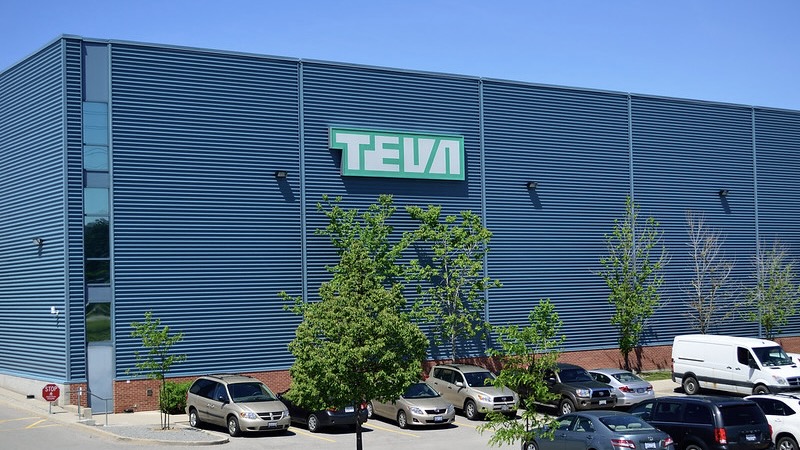Teva Pharmaceuticals, based in Israel and recognized as one of the largest producer of generic medications globally, manufactures various essential drugs, including versions of mixed amphetamine salts (usually marketed under the trade name Adderall), fluoxetine, ibuprofen, among others. In 2022, the company achieved a gross profit of USD 6,973 million US dollars. As one of the largest pharmaceutical companies globally, Teva operates facilities in North America, Europe, Australia, and South America, with authorized distributors such as CVS Pharmacy, Walgreens, and Wal-Mart. Teva is also one of the companies complicit in limiting the supply of medicines to Palestine, adding to the health burden carried by people in the occupied territories.
The company faced potential blacklisting by the United Nations for operating within illegal settlements in the West Bank. Anonymous Palestinian activists working on access to medicines told People’s Health Dispatch that Teva remains a major medicine supplier in the West Bank. Other pharmaceutical companies operating in the area include Taro Pharmaceuticals (formerly Israeli-owned, now owned by Indian manufacturer Sun Pharmaceuticals) and the American-Irish company Perrigo.
On the other hand, there are six Palestinian pharmaceutical companies, with five currently active. One is inactive in the Gaza Strip due to the current war and blockade, preventing the manufacture of drugs. In the West Bank, Pharmacare, Al-Quds Pharmaceuticals, Birzeit Pharmaceutical Company, Beit-Jala Pharmaceutical Company, and Sama Pharmaceuticals manage to supply one part of the required medicines. Together, these companies manufacture only 50% of the pharmaceuticals sold in Palestine.
The Protocol on Economic Relations, familiarly known as the Paris Protocol, governing economic relations, dictates that Israel controls all Palestinian imports and exports through taxes and border control, subject to Israeli economic policies. This classification as “imports” for Palestinian drugs destined for occupied East Jerusalem restricts their distribution to all Palestinians.
Manufacturing Palestinian pharmaceuticals is further constrained by Israel’s control over the import of raw materials and equipment into the Palestinian occupied territories. Consequently, many Palestinians find Israeli medicines more affordable due to the high taxes imposed by Israel on products entering the West Bank. “Therefore we see the Palestinian people consuming Israeli medicines,” said a Palestinian pharmaceutical expert who wished to stay anonymous.
The situation leaves the Gaza Strip highly dependent on aid organizations like the United Nations Relief and Works Agency (UNRWA) for medications. The blockade exacerbates drug-resistant infections as protocols to fight drug resistance cannot be consistently followed due to inconsistent antibiotic supplies.
Harm to the environment, harm to human dignity
The pharmaceutical industry further wreaks havoc on Palestine through environmental and human rights violations. Active pharmaceutical ingredients (APIs) have polluted water in Palestine through untreated sewage in the occupied territories, posing risks to both the environment and human health, leading to antimicrobial resistance.
Disturbing reports suggest that the Israeli Ministry of Health allowed large Israeli pharmaceutical companies to test products on Palestinian prisoners held in Israeli jails. This claim, made by Professor Nadera Shalhoub-Kevorkian and Mohammad Baraka, head of the High Follow-up Committee for Arabs in Israel, raises serious ethical concerns. In 1997, former Israeli politician Dalia Itzik reported that over 5,000 tests had been performed on these prisoners.
The refusal of the Israeli authorities to return the bodies of several Palestinian martyrs, like Fares Baroud, has raised suspicions that they were subjected to medical experiments. In 2015, Riyad Mansour, Palestinian ambassador to the United Nations, accused Israeli authorities of harvesting organs from Palestinian bodies possibly for medical experimentation – an accusation that continues to be made during the height of the current conflict.
Israel is obligated under the 4th Geneva Convention (articles 50, 55, and 56) to ensure proper medical supplies in Palestine. However, the anonymous activist who spoke to People’s Health Dispatch said that during times of conflict, Israeli pharmaceutical companies reduce the supply of medicine to the West Bank to bolster Israel’s reserves of medication. In Gaza, the ability to receive outside medications is gravely affected by the war, meaning many patients do not receive required medications or other forms of health care.
US complicit in ongoing drug shortages in Palestine
The same Israeli pharmaceutical companies that exploit the situation in occupied Palestinian territories, benefit from US policies and tax breaks through multiple avenues. At the same time, Palestinians receive no meaningful aid from the US. In fact, US support for this insidious occupation denies Palestine the ability to succeed. As of now, very few US politicians have supported a ceasefire, many remain silent, and several high-profile politicians have vowed support to Israel.
Teva Pharmaceuticals has received millions of dollars in tax credits and rebates from US states over the years. Such subsidies are common in the United States, as state governments will provide tax relief for companies to operate on their territory. The subsidies allowed Teva to reap larger profits. Formerly Israeli-owned company, Taro Pharmaceuticals, has also benefited from US drug maker policies.
The pharmaceutical industry’s influence extends to policy exploitation, such as rebranding drugs under the Orphan Drug Act, allowing companies to benefit from tax credits and market exclusivity for seven years. This can result in exorbitant drug prices. For example, before its acquisition by Sun Pharmaceuticals, Taro purchased Daranide, a glaucoma medication, and re-branded it under the Orphan Drug Act. Daranide used to cost ~USD 50 per bottle, but skyrocketed to over USD 13,000 after the re-branding. Similarly, Immunity Pharma Ltd, another Israeli pharmaceutical company, had an ALS treatment designated as an orphan drug.
The pharmaceutical industry’s actions set a precedent for other industries to conduct business at the expense of Palestinian lives. As long as Palestine is occupied, their pharmaceutical industry and economy will never fully flourish. For health to thrive, Palestine must be liberated.
People’s Health Dispatch is a fortnightly bulletin published by the People’s Health Movement and Peoples Dispatch. For more articles and subscription to People’s Health Dispatch, click here.





